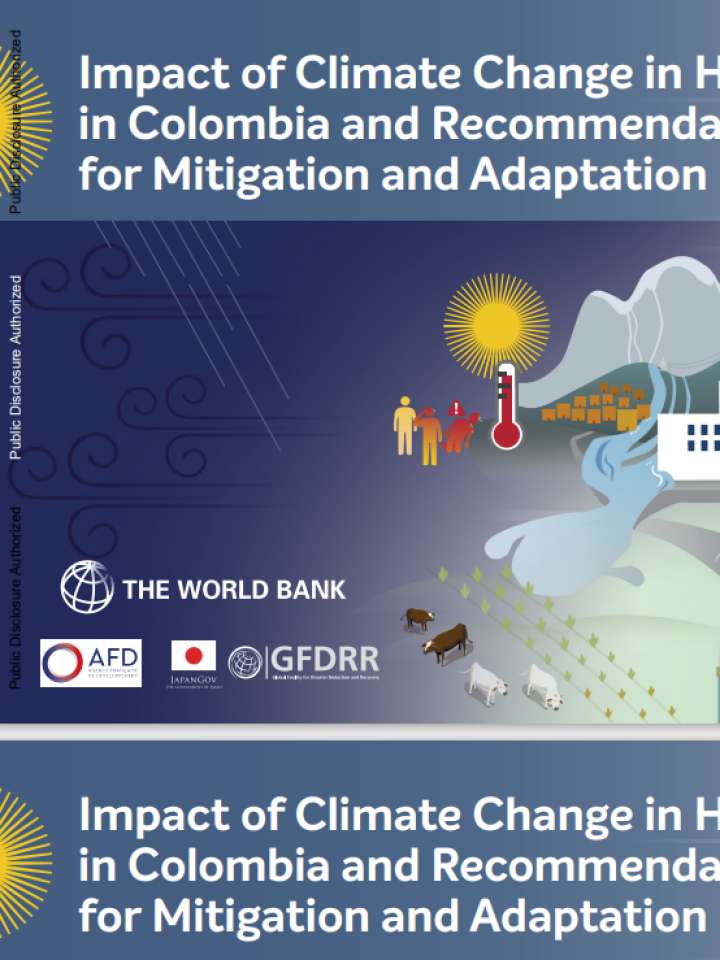Impact of climate change in health in Colombia and recommendations for mitigation and adaptation
This publication argues that a health sector response to climate change is especially urgent in Colombia due to geographic vulnerabilities which impact the health risk to its people. Climate change has been called the most important threat to human health in the 21st century. Recognition of the links between climate change and health remains nascent, so these efforts have not yet been accompanied by strategic and actionable approaches to measure the impacts and ground the responses. This report contributes to addressing that gap by providing a framework for understanding the impact of climate change on human health in Colombia and by outlining the most effective actions to mitigate the threat.
The results from this analysis show that implementation costs are dwarfed by the costs associated with the consequences of climate change on people’s health and the health system. Although the evidence on the effectiveness of these types of interventions in addressing the consequences of climate change is still accumulating, the potential benefits are large enough to suggest that it is likely to be a good investment. Colombia has set a clear path with the Nationally Determined Contributions (NDC) goals specific to the health sector and the Comprehensive Territorial Climate Change Management Plans (PIGCCTs) as a key vehicle to assess, prioritize and define measures and actions for adaptation and mitigation of climate change, to be implemented in the local contexts.
Explore further
